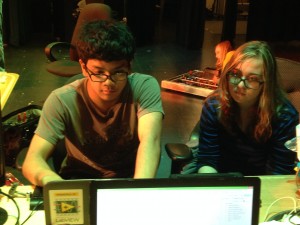The path from Piaget to Papert to project-based learning is a direct one. It was the Swiss psychologist, Piaget, who argued that children don’t learn by being passive receptors of information from the environment, but by actively confronting it. His student, Papert, who went on to be a founding faculty member of the MIT Media lab, followed in Piaget’s footsteps, arguing too that children learn by doing, and by exploring and manipulating their environment. In fact, the MIT Media lab has the distinctive approach of valuing learning over education, practice over theory, and lauding the increased ease with which students and others can innovate and collaborate. The message is clear—it’s what you can do that counts rather than what you say you can do; what’s valued is how you navigate by finding your own way rather than by following the path of another; and it’s what you can discover that’s important rather than what is told to you. Papert went on to publish a book, Mindstorms, which proposed a unique computer-based learning environment for children. This was in 1980, and he was a proponent even decades earlier of children learning by having access to inexpensive computing devices. And here we are 50 years later putting laptops in students’ hands! LEGO Mindstorms was named in Papert’s honor and it is fitting that robotics, the pre-eminent hands-on, project-based activity, should have such a close connection to his vision of using technology to enhance learning. A robotics challenge by its nature involves design and engineering, electronics and programming, collaboration and discussion, as well as brainstorming and attempt after attempt at a concrete solution interspersed with failure. The failures never seem daunting though, because each failure moves the process closer to a possible solution. What counts is resilience, the ability to bounce back from failure rather than trying to resist it.
So it is with our students too. They gravitate to the concrete rather than the abstract, to the practical as opposed to the theoretical, to the doing rather than the telling. And they are digital natives, either possessing or eager to possess the technical skills essential to the task at hand. For them, the age we live in couldn’t be brighter!

